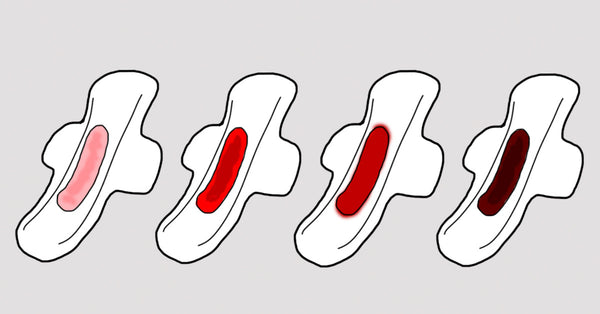Real Talk: Remember Not Only Cis Women Have Periods

In general, when people talk about periods, they tend to refer to them in terms of cisgender (or cis) women – that is, women whose gender identity matches the sex they were assigned at birth. You might think that’s fair enough: most people who have periods are cis women, after all. But other people, including some trans men, non-binary, agender and intersex people, have them, too.
Back in July, trans non-binary artist Cass Clemmer (who uses gender-neutral pronouns) posted a photo to Instagram that showed them free-bleeding through a pair of pants. They also held a sign that read, “Periods are not just for women. #bleedingwhiletrans.” This generated worldwide media attention, but Clemmer argued that there’s still a long way to go in terms of inclusivity outside the LGBTQI+ community.
“Though we have been making internal strides in the language we use when we talk about people that menstruate, there is still not a lot of discussion about trans menstruators in the general public,” they told UK newspaper Metro.
That’s hard to deny: Most media coverage of period poverty focuses on cis women and girls, tampons and pads can typically be found in the “feminine hygiene” aisle of supermarkets and pharmacies, and gendered bathrooms mean some menstruators have a harder time accessing and disposing of their san-pro of choice. We need to do better, especially considering the discrimination that trans and non-binary people face when they try to access healthcare, including reproductive healthcare.
According to the National Women’s Health Network, genderqueer and non-binary people are more likely than other groups to experience assaults, police brutality, and harassment, and most likely to avoid medical treatment as a result of medical discrimination.
Similarly, transgender people experience verbal and physical abuse from medical professionals, and are sometimes refused medical treatment. Even doctors who aim to be inclusive are often ignorant of trans patients’ needs. When asked about the sexual health information their doctors provided, 95% of trans men who have sex with men said it was inadequate. This means that people in these groups are less likely to undergo screenings for ovarian, cervical and uterine cancers, which puts their health at risk and means training around what were once considered women’s health problems urgently needs to be reconsidered.
Even those of us who consider ourselves allies can be ignorant about the specific issues trans, intersex, and non-binary people face when it comes to having a period, from not being able to wear a chest binder due to breast pain to fear of being outed by a rustling tampon wrapper in the men’s bathroom. Many feminist activists (including actor Meghan Markle) have argued for an end to period stigma, but we need normalize a wider range of experiences.
But while there’s still a long way to go until gender-neutral stalls with their own sanitary bins are standard, or we see a trans man in a period ad, there are signs that attitudes might be starting to change – at least a little.
Comedian, writer, and “period positive” campaigner Chella Quint has been writing to pharmacies to request that period products are placed in a gender-neutral part of the store, with a matter-of-fact, non-euphemistic label, such as “menstrual products.” Last year, period underwear company Thinx added gender neutral undies to their line. And the vast majority of outlets that covered Cass Clemmer’s Instagram post were respectful.
In terms of reproductive health in general, earlier this year The British Medical Association advised doctors to refer to “pregnant people” rather than “mothers,” a hopeful sign for the future.
But as important as it is for institutions to change, we can all challenge the status quo. Ask your favorite drugstore if they’d consider a signage change. Don’t associate having a period or a vagina with being a woman or refer to your genitals as “lady parts.” And when it comes to periods, talk about “menstruators” or “people who have periods” – that way you won’t exclude anyone.
0 comments